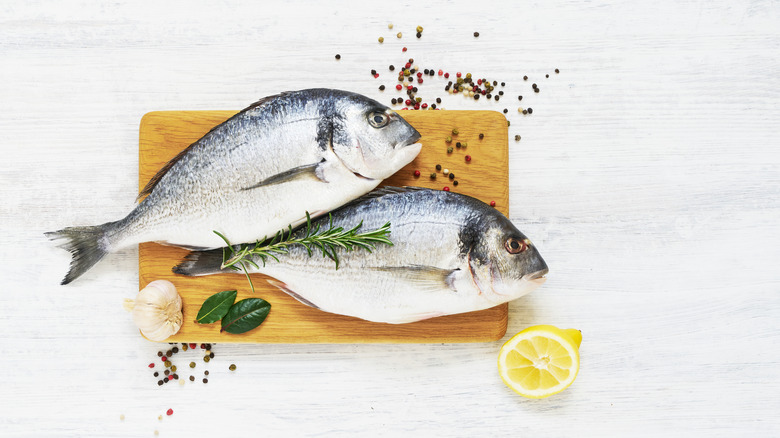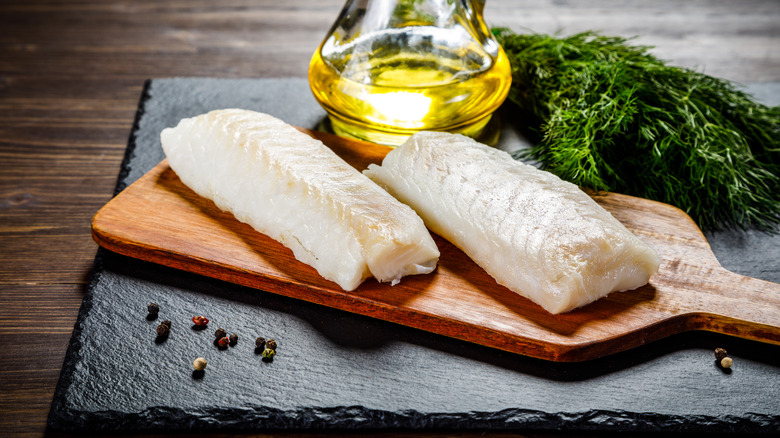Why You Shouldn't Wash Raw Fish Before Cooking It
If you're like many people, a key part of your food prep process is to wash the ingredients before you start cooking them, to get rid of dirt and germs. However, depending on what you're planning to prepare and cook, you may not actually want to wash it beforehand, as you may actually end up doing more harm than good. For example, it's well established that washing chicken before cooking it is a bad idea. That's because washing raw poultry can actually end up spreading harmful bacteria around. The water you're using to wash off the raw poultry isn't hot enough to kill off the bacteria, so all you're doing is spreading the bacteria around with the water.
According to NBC News, researchers from Drexel University have shown that rinsing raw food (in their case, raw poultry) actually allows bacteria like salmonella to spread via the water droplets up to 2 to 3 feet around the food prep area through aerosolization. When you end up prepping other food on those surfaces without disinfecting them (which you probably won't since you can't see the bacteria contaminating the surface), then you risk cross-contamination. For the same reason, you shouldn't wash fish before cooking it.
Washing raw fish can spread bacteria
Per WebMD, fish is similar to poultry in that washing it raw can cause any bacteria to spread around your sink and kitchen, increasing the likelihood you will get sick. Raw fish is known to contain dangerous bacteria, including salmonella, listeria, and clostridium. Based on samples collected and tested by the US Food and Drug Administration's field laboratories, nearly 10% of imported seafood and 3% of domestic seafood tested positive for salmonella.
Instead of washing your raw fish, you should cook it to the proper temperature to kill off harmful bacteria. Per the USDA, that temperature is 145 degrees F. If the fish is wet, pat it dry with a paper towel before you start cooking it, so that it will sear properly and to prevent it from getting tough and mushy. Shellfish though is an exception to the no-washing rule — if you're cooking shellfish like clams, mussels, oysters, or scallops, you do want to give them a rinse to get rid of any dirt or sand that may be inside.

